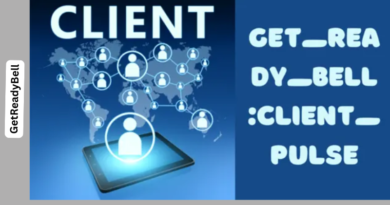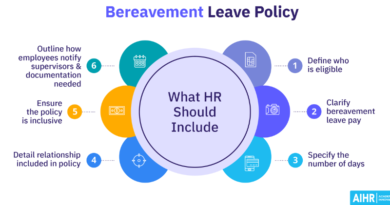Looking to Invest in Digital Real Estate? Here’s How to Begin
With the rapid expansion of the digital landscape, investing in digital real estate has become an increasingly popular choice. Unlike traditional investments, digital real estate often requires less capital upfront and generally comes with fewer high-stakes risks. If you’re considering exploring this growing market, here’s a breakdown of what digital real estate involves and how you can start making your own investments.
Must-Have Tools to Launch Your Website in 2024
Selecting the best tools for your website can be a lengthy process. To simplify things, business.com has reviewed numerous options and compiled a list of top recommendations to help you get started effectively.
Understanding Digital Real Estate: What Is It and How Does It Work?
Most people know about traditional real estate—buying property like houses or land to rent out or sell for profit. Digital real estate operates on a similar principle but exists online. Domain names, websites, and blogs are all types of digital properties that can be bought, developed, and sold, much like physical properties.
Many entrepreneurs make a career by trading digital assets, and some domain names have sold for millions, while websites are often acquired for significant sums. Investing in digital real estate can also be a profitable path for you.
How to Start Investing in Digital Real Estate
A common misconception about digital real estate is that it requires advanced technical skills or web design experience. In reality, getting started is easier than ever, even for beginners. Thanks to user-friendly platforms like WordPress, you can set up a website with just a few clicks and start investing in digital assets.
There are two main approaches to investing in digital real estate: building a new website from scratch or purchasing an established site.
1.Building from Scratch:This option requires a smaller upfront investment, as you only need a domain name and hosting. While building up the site takes time and effort, it can eventually yield profit when the site grows in value.
2.Buying an Established Website:This approach requires a larger initial investment but allows you to earn returns more quickly since the website is already generating revenue.
Each strategy has unique pros and cons. Creating a website involves a longer timeline to profitability, but the upfront costs are low. Buying an established site offers faster returns, though it demands a higher initial budget. Choose the path that best aligns with your investment goals and resources.
Where to Buy Established Websites for Digital Investment
1.Flippa:As one of the most popular marketplaces for buying and selling websites, Flippa offers a variety of profitable sites up for auction. Each listing typically includes details on monthly earnings and monetization methods, helping you assess potential revenue streams.
2.Research Carefully:Keep in mind that not all listings are as reliable as they may seem. Conduct thorough research using tools like Semrush to evaluate a website’s SEO performance, traffic, backlinks, and other key metrics before buying
3.Consider Website Brokers:For added support, you can work with a professional website brokerage firm like FE International. Brokers handle the complex research and vetting process, guiding you toward sites that match your investment goals.
How to Build Your Own Website for Digital Real Estate Investment
Creating your own website is another great way to invest in digital real estate. Though this approach requires more initial effort, it gives you complete control over the domain and content.
To get started, you can use one of the top website builders available, which make it easy to set up a professional site without advanced technical skills. This hands-on method allows you to shape the site’s content, design, and functionality, helping you build a strong online presence from the ground up.
Wix: A Versatile Website Builder for All Skill Levels
Wix offers over 900 industry-specific, responsive templates and a range of customizable tools, making website design accessible for users of all experience levels. Beginners can use its intuitive setup wizard and drag-and-drop features, while advanced users can utilize custom coding with Wix’s developer mode.
Wix provides both free and paid plans. The free plan includes ads, while paid plans—ranging from $17 to $159 per month—are ad-free and offer additional features. Core, Business, and Business Elite plans include website analytics to track site performance, giving you insights to optimize your online presence.
Explore Wix to see if it’s the right fit for your website needs.
Hibu: Full-Service Web Design for Small and Midsize Businesses
If you prefer a hands-off approach, Hibu could be a great choice. This full-service web design agency specializes in creating “smart” websites optimized for both search engines and target audiences. Hibu also provides additional services like managing business listings, online reviews, reputation, and e-commerce.
Since Hibu operates as a service rather than a software tool, pricing varies based on your project needs. A consultation with a Hibu representative will give you a custom quote. The company’s focus on small and midsize businesses makes their services more affordable and tailored to your needs.
Weebly: A Flexible Website Builder for All Business Sizes
Weebly’s user-friendly interface and robust features make website creation easy, with over 50 templates categorized by industry, a drag-and-drop editor, and an HTML editor for custom coding. Weebly also offers analytics, e-commerce tools, and marketing apps to support your growth.
With both free and paid plans, Weebly provides scalable options for businesses of all sizes. Paid plans start at $10 per month when billed annually ($13 month-to-month) and go up to $26 per month when billed annually ($29 month-to-month). Each paid plan includes a 30-day money-back guarantee and a free domain for the first year, with partial refunds available for cancellations or downgrades.
Duda: A Mobile-Responsive Website Builder for Teams and Agencies
Duda specializes in creating mobile-friendly websites, allowing users to build and edit a responsive site optimized for different devices. With an intuitive drag-and-drop editor and mobile-specific templates, Duda makes it easy to create a site that performs well on any screen. Its collaborative features also support multiple users, making it ideal for team projects.
Duda offers several pricing plans: the Basic plan at $19 per month billed annually ($25 month-to-month), the Team plan at $29 per month billed annually ($39 month-to-month), and the Agency plan at $52 per month billed annually ($69 month-to-month). There’s also a White Label plan for $149 per month billed annually ($199 month-to-month). Duda includes a 14-day free trial of the Team plan so you can explore its full feature set before committing.
How to Profit from Digital Real Estate
Once you’ve purchased or built your website, the next crucial step is creating regular content that drives traffic. Use tools like Google’s Keyword Planner to find high-traffic search terms that people are already looking for, and tailor your blog posts around these keywords.
If managing content creation is too time-consuming, consider hiring freelancers. Platforms such as Upwork offer affordable freelance writers who can produce blog posts and help promote your site. Once you start attracting steady traffic, there are various ways to monetize your website and turn that traffic into income. Here are some effective methods:
1.Advertising:Sell ad space directly on your website, or join an ad network like Google AdSense to earn money when visitors click on ads.
2.Affiliate Marketing: Promote products from other companies and earn a commission every time someone makes a purchase through your affiliate link.
3.Selling Products:Create and sell your own digital products, such as e-books, online courses, or software, directly from your website.
4.Sponsored Content:Partner with brands to write sponsored blog posts that promote their products or services. These brands will pay you for featuring their content on your site.
With consistent effort, you’ll start to see profits. From there, you can choose to either sell your site for a profit or continue growing it as a source of ongoing income.
As your website grows, you can either continue developing it for long-term revenue or choose to sell it for a profit.
While creating a website doesn’t require a large investment, it’s important to remember that unlike stocks or real estate, the value of your digital property won’t increase automatically. You must put in the effort to grow your audience and enhance your website’s value over time.




